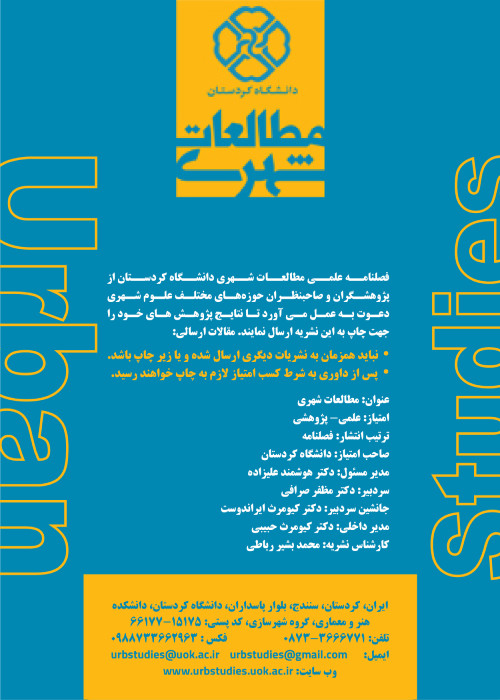Learning from Cafés: Cafes as “other spaces”
Many measures are being taken to bring peace and contentment to the citizens of today’s cities in weird and costly ways. However, little attention is paid to modest places that can satisfy the neglected needs of urban dwellers with lower costs. Paying attention to these places is a reflection on a circle that has an important relationship with freedom, satisfaction and peace of mind. The current research seeks to introduce one of the most attractive and influential types of such places. In this regard, it is essential to review the related principles from a philosophical point of view in order to understand the nature of these spaces.The most important basic concepts in this review are the third space (introduced by Edward Soja, the postmodern geographer and Homi K. Bhabha, the post-colonial cultural theorist), the third place (introduced by Ray Oldendburg, American urban sociologist) and heterotopia (a concept developed by Michel Foucault, the French philosopher, for the purpose of classifying space). A dissenting model, combining the features of these spaces, creates a new concept called “Other Space”. One of the typical examples of these types of spaces, which is less regarded by the experts in the field of urban studies, is cafe. Although cafes are semi-public spaces, identifying their nature and functionality due to their customer attraction can provide informative lessons for urban designers and planners. This research is based on qualitative methods, interpretive and case study approaches. It uses 20 cafes in the city of Karaj as sample. Documents about the three basic concepts were presented in order to define the types of cafes used for implementing the conceptual model of heterogeneous spaces. The final 5 main categories offered for cafes’ typology are: 1. Cafe Galleries and cafes with friendly atmosphere, where artists and art lovers are their main owners and customers. 2. Luxurious cafes, having more expensive menus and more affluent customers. 3. Old cafes whose identity is based on their age and history, and nostalgia is their main attraction. 4. Cozy cafes with diverse customers, have been existed from the very beginning of cafe in Iran and endure in the same way, despite the diversity in the business sector. These cafes can be found in each neighborhood. 5. Chain cafes, a newer generation of cafes in Iran based on the global models. According to the results of this study, these cafes, especially those with more cultural-artistic tendencies, have a close relationship with the features mentioned in the theoretical basics of the conceptual model of “Other spaces” such as the third space, third place and heterotopia. They have many lessons for urban planners and designers. With their capacity, their characteristics and optimized usage, these cafes can be considered as “other spaces” in various theoretical and practical urban studies. In fact, understanding that “Other Spaces” have been able to create small utopias in the commotion of today’s city can help to reconsider specialized decision making about other urban spaces.
- حق عضویت دریافتی صرف حمایت از نشریات عضو و نگهداری، تکمیل و توسعه مگیران میشود.
- پرداخت حق اشتراک و دانلود مقالات اجازه بازنشر آن در سایر رسانههای چاپی و دیجیتال را به کاربر نمیدهد.



